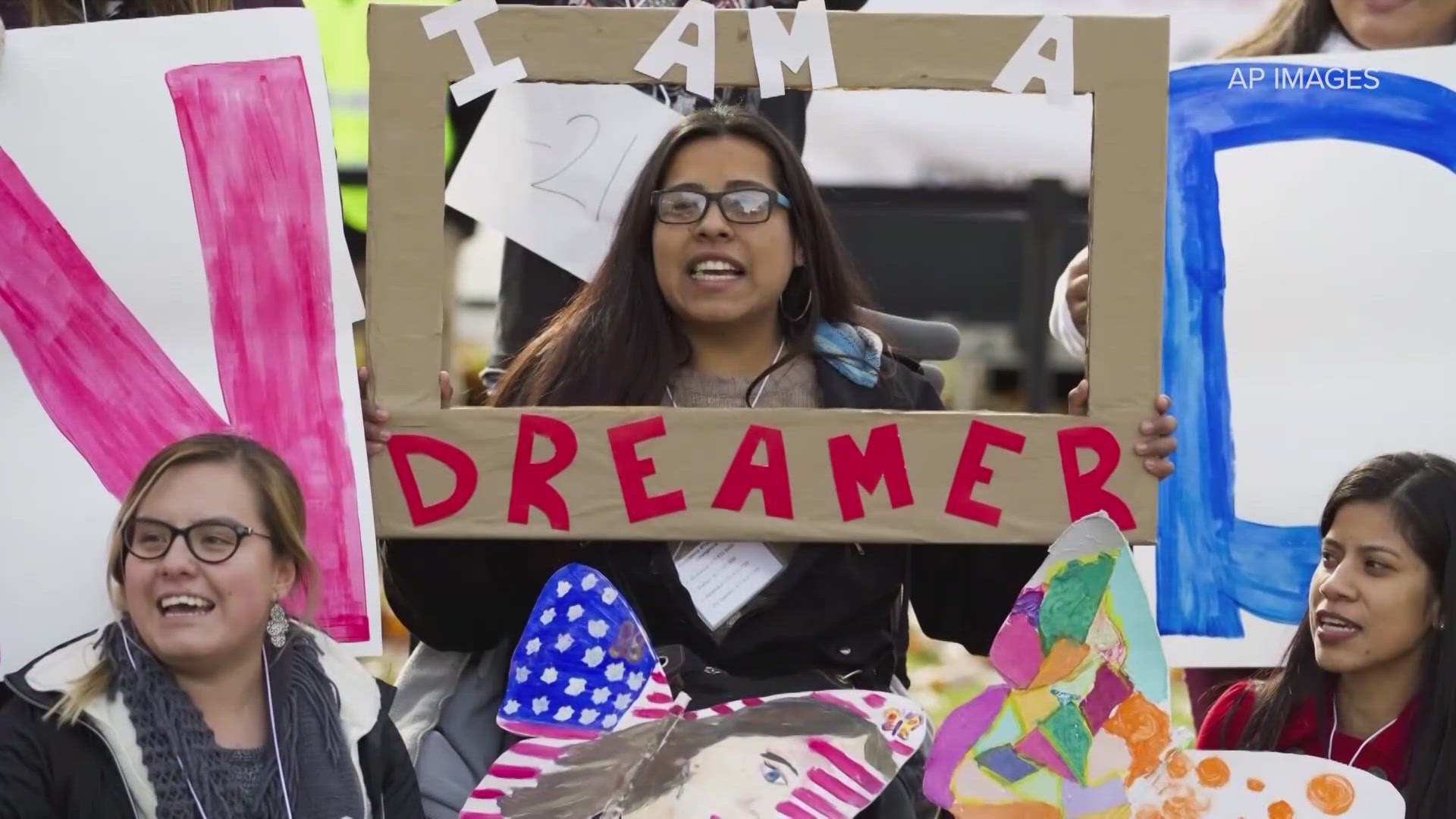DALLAS — As more than half of the country celebrated Tuesday's election victory for Donald Trump, Jessica Cortez was among those who admitted it was difficult to get a good night's sleep.
Cortez is among millions waiting to see if his immigration proposals, including large-scale deportations, actually do come true.
"A lot of fear, uncertainty, anger," the 29-year-old said from her Dallas home.
She says she only found out during high school, as she filled out college applications that asked for a Social Security number, that she was born in Mexico and brought to the U.S. by her parents when she was 7 months old. Now nearing her 30th birthday, the DACA or Dreamer program helps keep her in the only country she's ever known.
"I could wake up tomorrow and there could be an immigration agent or an ICE agent outside of my house or my mom's house. We don't know," she said of her concerns after Trump campaigned on a promise to launch the largest deportation effort in U.S. history.
Trump addressed immigration during his election night acceptance speech.
"We're gonna have to seal up those borders and we are going to have to let people come into our country," said Trump. "We want people to come back in. But we have to let them come back in but they have to come back in legally. They have to come in legally."
"And it's important for migrants everywhere to understand that no matter who is president, the law of the land, 'trumps' everything else," said immigration attorney Renata Castro, founder of the immigration law firm USA 4 ALL.
"People still have rights. And it's very important to seek legal representation now more than ever."
Castro says the sheer number of immigrants could make any removal process difficult. Immigration judges are currently setting hearing dates as far out as 2029. Trump tried to rescind DACA before. The Supreme Court stopped him in 2020. And there are an estimated 3.6 million DACA Dreamers in the U.S. right now.
"He's put so much attention on the idea of removing illegal immigrants from the country that he'll have to do something and it'll have to be visible," added SMU political science professor Cal Jillson. "But he will soon become aware, if he's not, how the economy depends upon these workers in the country, illegal or not, and simply rooting them out would have really substantial economic consequences."
"And I believe that the business community is actually going to be the one to say, well, wait a minute, why am I being collateral damage in all of this," said Castro. "Because this really doesn't help anybody. It doesn't help our economy. So maybe this is going to be the straw that breaks the camel's back, and we will have some kind of immigration reform once and for all."
As for Jessica Cortez, ironically, she is a legal secretary at a Dallas law firm and is studying Criminal Justice at Dallas College. She married an American citizen and has two children born here.
"I just wish that he would take into consideration not just Dreamers like myself, but the parents of dreamers," she said. "There are just a lot of things that I wish he would take into consideration."
The response to Trump's immigration proposals, however, resonated strongly with Hispanic Americans, with Texas border counties showing much stronger support than in previous presidential elections.
Castro says she's seen that evidence even among her previous clients.
"And I think that there's something that's very different this time," she said. "People who are now U.S. citizens now saying, yes, he needs to do this. Yes, he needs to deport people. Yes, he needs to close the country." she said of what she's heard from those previous clients she helped with their immigration issues.

